No products in the cart.

For every enterprise, maintaining a secure environment for transporting proprietary or sensitive data is absolutely essential. This is particularly true in industries that rely heavily on automated IoT-centric applications, especially those in manufacturing, logistics and warehousing, energy generation and distribution, and healthcare. Any cyberattack can be catastrophic from economic and operational standpoints, and risk losing the confidence of end-users and other entities that must deal with the consequences.
For businesses that require superior security, utilizing an infrastructure that minimizes the chances of a breach or cyberattack is essential. They offer far more robust security compared to Wi-Fi technology, plus they give businesses the control they demand to ensure that essential data can be accessed and processed as they see fit.
Private cellular technology is rapidly gaining popularity among enterprises for a variety of operational and economic reasons, with security being just one important factor. For use in industrial environments, private cellular technology compares extremely well to Wi-Fi, which is ideal for office connectivity, but is not well-suited for addressing expansive outdoor or indoor industrial needs.
For example, Wi-Fi deployed in sites with metallic structures, like the shelving, racks, and equipment found in warehouses or factories, play havoc with Wi-Fi signals, resulting in frequency interference and dead zones that can not only cause safety issues, but can halt production altogether. Private cellular has no such impediment, and works exceedingly well in these settings, giving reliable, secure connectivity in even the most challenging environments.

From an economic perspective, private cellular networks are far more cost-effective to deploy than Wi-Fi. A private cellular network requires one-fourth the number of access points that a Wi-Fi system would need to cover an indoor area, and in outdoor locations, a single private cellular antenna improves the ratio to 10 to 1. On top of this, private cellular has more flexibility, giving enterprises the ability to extend their coverage area through efficient mesh technology that can be deployed in one hour, eliminating the laborious and expensive task of bringing backhaul to a remote location.
Cellular networks have greater security compared to Wi-Fi for a number of reasons. First, cellular devices use SIM cards to authenticate with the network, with this occurring multiple times per second. Spoofing a SIM that is authorized on a network is exceedingly difficult. Second, cellular networks are encrypted end-to-end, virtually eliminating Man In the Middle (MITM) and sniffing attacks that are common threats within a Wi-Fi network. Third, cellular networks operate through the first four layers of the network stack – from the physical to the transport layer – whereas Wi-Fi encompasses only the first two layers. Protocol controls at the transport layer make it more difficult for a bad actor to launch a successful attack, resulting in substantially tighter security in cellular mesh. And if somehow a device is compromised, only the transmission path is affected; the attacker has no access to the encrypted payload, the network core, and other devices.
Separation of business and non-business traffic is another important strategy to address security concerns for crucial applications. Wi-Fi provides sufficient utility and reliability for employee and guest traffic. However, establishing a more robust network for mission-critical applications and services significantly limits attack vectors such as phishing or brute force attacks. It also eliminates the concern that everyday users may commandeer bandwidth away from critical applications to less essential functions.
Yes, private cellular networks provide the reliability, bandwidth efficiency, and low latency enterprises need for the next generation of automation and AI-driven applications that are crucial to the business. But even more critically, these solutions offer security protocols and features that far exceeds what Wi-Fi can offer. Plus, it enables enterprises to control exactly how their proprietary and essential data can be managed and used, a concept that isn’t possible with public networks. For businesses that operate industrial, agriculture, warehousing, manufacturing, and other industrial sites, a private cellular network is clearly the best option for satisfying operational needs and ensuring that all data is properly secured.
